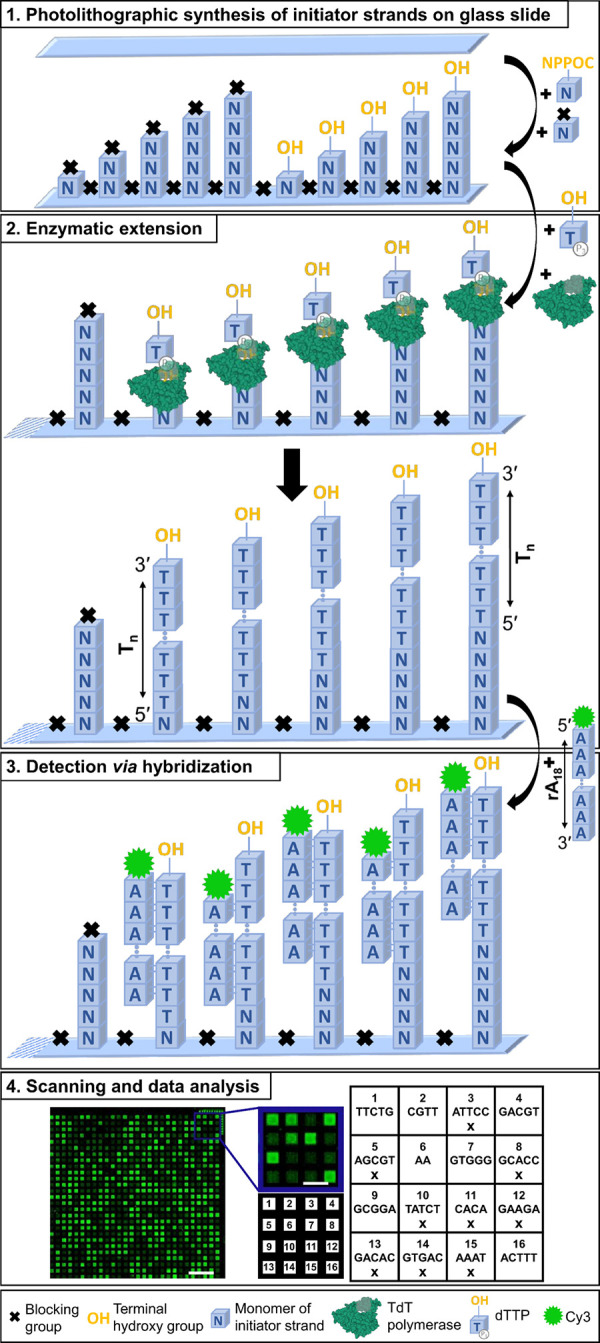Figure 1.

Schematic representation of the experimental design and assays. (1) Two variants of all possible permutations of mono- to pentamers, either with accessible terminal hydroxy group (OH) or with DMTr-blocked terminus (×), were synthesized on a glass slide via photolithography. (2) The immobilized initiator strands were then extended enzymatically by TdT using dTTP as substrate, generating dT homopolymers. (3) Poly dT strands were detected via hybridization with a Cy3 labeled complementary probe. (4) Scanning of the microarray allows for fluorescent signal intensities at different positions to be assigned to specific sequences. The scan to the left corresponds to 2.4% of the total synthesis area (scale bar 300 μm). In more detail, the close-up of 16 features (scale bar 100 μm) and the corresponding layout beneath are shown with a grid next to it, indicating the sequences synthesized at specific positions. Features with blocked termini (×) exhibit much lower fluorescence signal intensity than those with strands accessible for extension. TdT model adapted from PDB: 1JMS.
